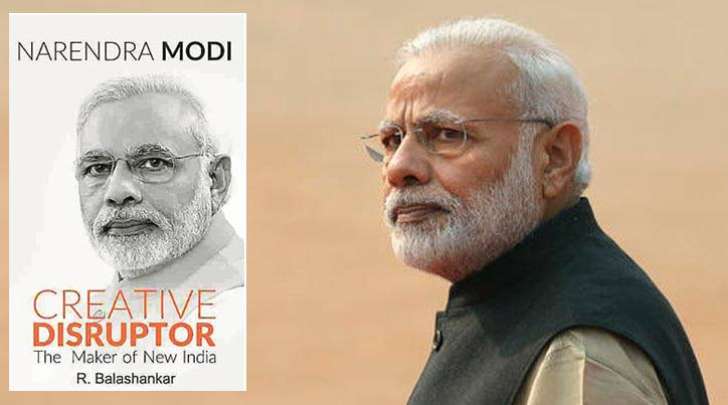NEW DELHI, Dec 7: A new book on Narendra Modi by a senior BJP member has a whole chapter on Shashi Tharoor, whose previous work was also on the Prime Minister, and claims the Congress leader has a “fascination and an unconcealed admiration” for Modi.
The soon-to-be-released book is titled “Narendra Modi: Creative Disruptor, The Maker of New India” and is penned by R Balashankar, a member of BJP central committee on training and a former editor of RSS-affiliated journal Organiser.
The book is a detailed assessment of Modi’s impact on Indian polity and its course in the future.
Balashankar says he chose to write the chapter “Tharoor’s Modi Obsession” after reading Tharoor’s recent book “The Paradoxical Prime Minister: Narendra Modi and His India”.
According to him, Tharoor has “not said anything new or what we have not heard about Modi. This also gives Modi the famous negative propaganda on which he thrives”.
The author goes on to give a point-by-point rebuttal on the four paradoxes Tharoor in his book accuses Modi of.
He claims that since Modi lives a simple life and is committed to the country and people, Tharoor “has to ask such convoluted questions, perhaps to please his boss”.
When asked for a reaction, Tharoor said that he is yet to read the book but felt “as far as any claims of ‘unconcealed admiration’ for Prime Minister Modi are concerned, these only show the arrogance and hubris of PM Modi’s supporters that they take even well-reasoned arguments against the current government’s achievements as a badge of honour, or indeed support, for PM Modi himself”.
The book, published by Konark, has a foreword by BJP chief Amit Shah, an introduction by Finance Minister Arun Jaitley and a message by Road Transport and Highways Minister Nitin Gadkari.
“This book is a useful compendium on how and what difference the Modi government has brought about to transform the fundamental policy outlook and introduce advanced thinking to modernise the system,” Shah writes.
But he hastens to add, “I need not agree with all the conclusions and observations in this book. It is an independent work and it is his (author’s) understanding of the political and economic scenarios of the country. The conclusions are his own and the party need not entirely agree with them.” (PTI)
Trending Now
E-Paper


